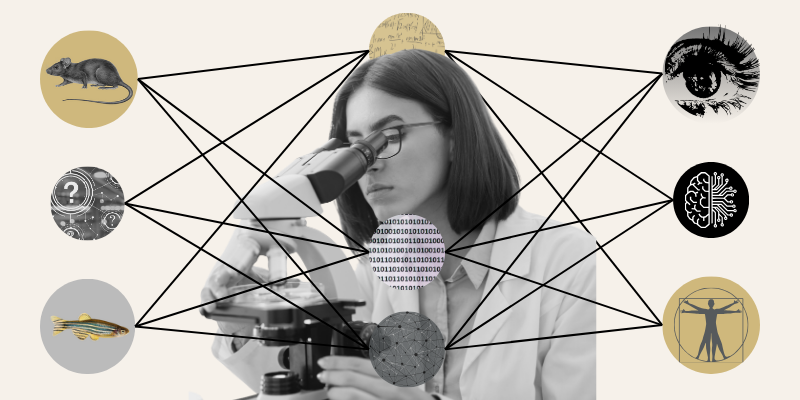Faculty members from the University of Colorado Department of Biomedical Informatics and Department of Medicine have received a $1.8 million, five-year grant from the National Heart, Lung, and Blood Institute (NHLBI) to offer summer institutes focused on the ethical use of artificial intelligence (AI) and machine learning in data sciences and omics of cardiovascular and lung diseases.
The grant, awarded by NHLBI’s Programs for Inclusion and Diversity Among Individuals Engaged in Health-Related Research (PRIDE), allows for all expenses paid career-advancing opportunities for junior investigators to enhance the diversity of the biomedical research workforce. The CU School of Medicine is one of nine institutions in the national PRIDE program.
“Through the previous iterations of this program, we’ve been able to train 18 scholars who are doing incredibly well, so it’s exciting to be able to welcome six more individuals per year to the program who will focus on using artificial intelligence and machine learning in an ethical fashion,” says Sonia C. Flores, PhD, professor of medicine, a principal investigator of the grant who will also serve as a career coach during the summer program.
The program, also led by Ivana Yang, PhD, professor of biomedical informatics, and Matthew DeCamp, MD, PhD, associate professor of medicine, will introduce the new group of pulmonary and cardiovascular disease scholars to didactic and hands-on instruction on “omic” technologies, and data analysis, including machine learning and AI approaches. The scholars will also focus on the integration of omics with other data sets, such as electronic health record data, managing biases in dataset interpretation, and introduction to a suite of social science theories.
“We know how beneficial being part of the PRIDE program has been for scholars — many have been able to obtain major funding or get promoted, and adding this new AI and bioethics piece enhances the curriculum,” Yang says.
At the heart of innovation
Skilled faculty in AI and ethics are at the forefront of the program, says Flores, who also serves as the Department of Medicine vice chair for diversity and justice.
Combining expertise with mentorship creates a holistic experience for the scholars.
“We can provide safe spaces where scholars discuss issues and topics that may impact their personal and professional lives,” the researchers say of the program. “Furthermore, our focus on personalized medicine, a rapidly emerging scientific and clinical reality with the potential to transform health care and improve health outcomes, and the contribution of ancestry and gender to the interpretation of omics of lung diseases with sensitivity to biases in AI and machine learning methods is a timely and highly relevant research area.”
DeCamp, who studies the intersection of bioethics and AI, says there’s an increasing need for diversity, equity, accessibility and inclusivity within the field, especially as machine learning and AI continue to integrate into health care and research.
“Exposing participants in this program to core bioethics issues at the intersection of omics, AI biases, and health disparities is an important addition,” he says.
Training the next generation
In addition to the curriculum offered through the program, the grant will provide the six yearly scholars funds for small research projects.
“Every project will include a bioethics issue in some way,” Yang says. “It’s going to be exciting to see how these scholars integrate the curriculum into their work. They’ll be able to spend lots of time with mentors who can guide their research and also offer important career insight.”
Catalyzing important research will help the scholars become experts in their field.
“It’s so rewarding to see these young investigators really come into their work, get their own funding, publish papers, and get promoted,” Flores says. “It gives me a tremendous amount of satisfaction when I see how well they’re doing. We’re excited to be part of these scholars’ success stories.”





.png)
